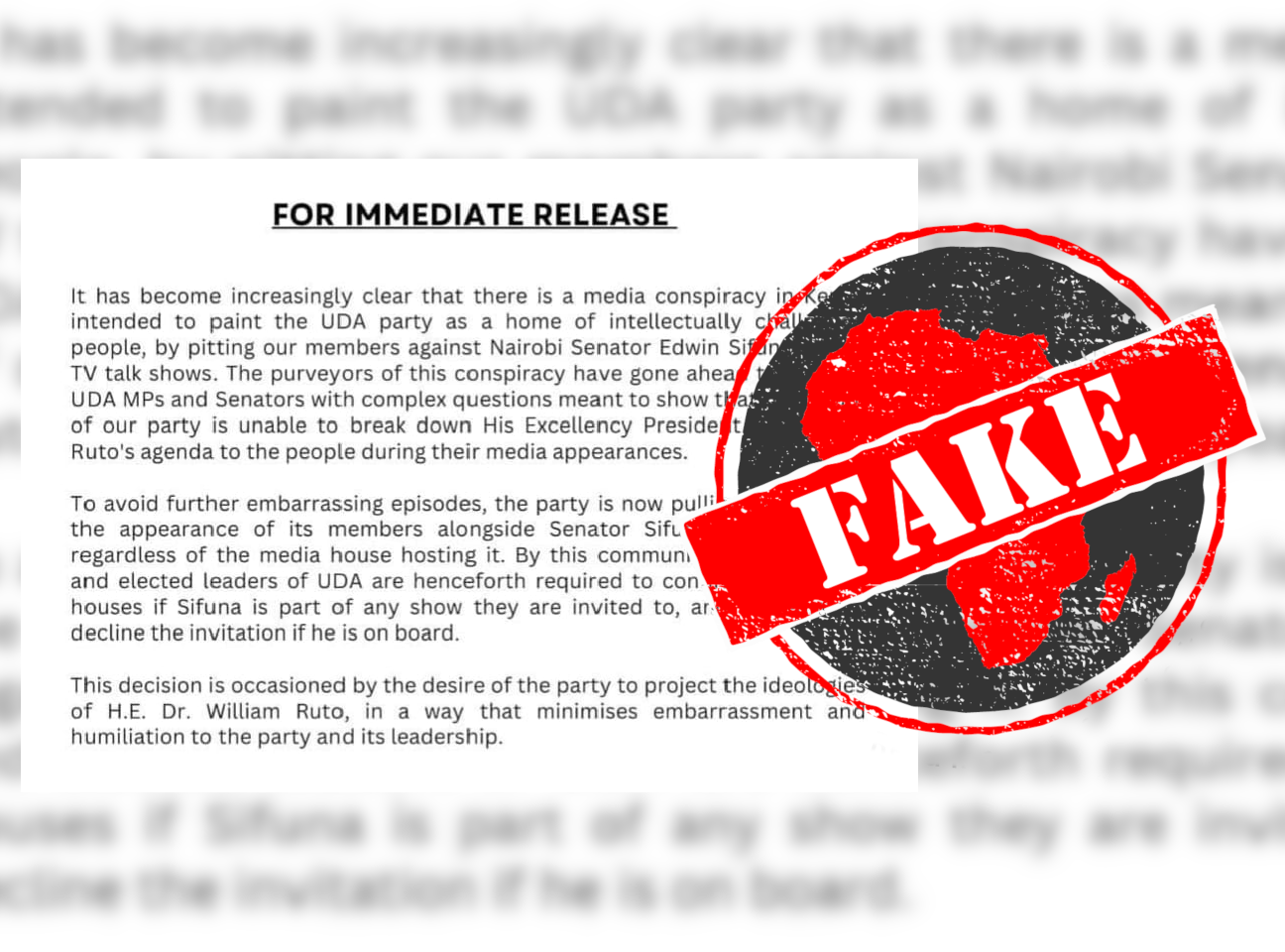IN SHORT: A press release circulating on social media apparently bans members of the United Democratic Alliance party from appearing on TV shows alongside Edwin Sifuna. But it’s a fake document and should be ignored.
“It has become increasingly clear that there is a media conspiracy in Kenya intended to paint the UDA party as a home of intellectually challenged people, by pitting our members against Nairobi senator Edwin Sifuna during TV talk shows,” reads part of what appears to be a press release from Kenya’s United Democratic Alliance (UDA) party.
The press release goes on to prevent its members from appearing on television programmes alongside Edwin Sifuna, the senator for Nairobi county. It appears to have been signed by UDA secretary general Cleophas Malalah.
In March 2024, Sifuna appeared on Citizen TV to discuss the state of the nation with fellow politicians, member of parliament John Kaguchia and deputy majority leader of the national assembly Owen Baya. During the heated discussion, Sifuna was heard saying to Kaguchia: “I am not belittling you, your points are little.”
The press release has been posted here, here, here, here, here, here, here, here, here, here, here, here, here, here, here, here, here, here and here.
But is it really from the UDA? We checked.

‘Consider it as fake’
We searched through the official UDA Facebook and X (formerly Twitter) social media pages for the press release and came up empty. Additionally, no mainstream media houses reported on it, which would be expected if it were legitimate.
On 16 March, Malalah posted the press release on his Facebook page with the word “fake” printed across it multiple times in red.
“Ignore the circulation and consider it as FAKE #UDADigital,” reads his post.
The press release is fake and should be ignored.
Republish our content for free
For publishers: what to do if your post is rated false
A fact-checker has rated your Facebook or Instagram post as “false”, “altered”, “partly false” or “missing context”. This could have serious consequences. What do you do?
Click on our guide for the steps you should follow.
Publishers guideAfrica Check teams up with Facebook
Africa Check is a partner in Meta's third-party fact-checking programme to help stop the spread of false information on social media.
The content we rate as “false” will be downgraded on Facebook and Instagram. This means fewer people will see it.
You can also help identify false information on Facebook. This guide explains how.


Add new comment